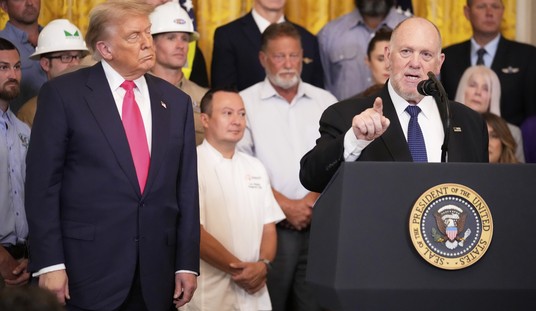Recently, PJM sat down with professor and author Salim Mansur, whose latest book I reviewed here.
In this interview, Salim describes himself as a “Muslim dissident” and he challenges all those who describe themselves as “moderate” Muslims. Unlike many “moderate” Muslims, Salim is opposed to a shariah-compliant nation and believes that religion and state must be separate in order for modernity, human rights, scientific inquiry, and democracy to flourish. He says so, below, in his own words. He also has strong words to say about immigration and Canada’s multicultural policy. Born in Calcutta, India, Salim arrived in Canada in the spring of 1974.
Phyllis Chesler: Tell us about what you do.
P: You may note that I did not indicate what your religion was or currently is in my review of your book. I did not do so because the work stands on its own merit, and does not have to be framed as the work of a “Muslim dissident.” But how would you describe yourself in terms of religious identity?
S: I am a Muslim by faith, a Sunni Muslim, and raised by my parents in the mainstream of the majority Hanafi madhab or school of Sunni Islam. But as many of my generation of Muslims, my parents sent me to an English middle school run by Catholic priests, and this upbringing and education taught me to be open to the world around me.
P: And how about your intellectual identity?
S: I am a liberal or, more precisely, I would say a classical liberal. I believe in freedom, individual freedom based on individual rights, and I view the struggle for freedom as the defining element in the making of the modern world.
P: Are you, or have you been, politically active? Which political party do you support, or with which political party are you affiliated?
S: I am not at present politically active. But I was for sometime, and I did stand for a parliamentary seat as an officially nominated candidate in the 2000 Canadian federal election. I was nominated by the Canadian Alliance but I did not win the seat I contested. Canadian Alliance was a center-right conservative party, and at the time of the 2000 election it was the main opposition party in Ottawa. Later the Canadian Alliance merged with the Progressive Conservatives to form the Conservative Party of Canada under the leadership of Stephen Harper, the current prime minister of Canada.
P: How do you reconcile your faith with your politics, or your religious identity with your intellectual identity?
S: I do not carry my faith into my politics. For me faith is a matter of personal belief, it is not a political ideology. As a modern liberal Muslim, or a Muslim modernist, I view the separation of religion and politics as a necessary and essential requirement in order to come to terms with the modern world of science and democracy.
P: Then would it be fair to say you are at odds with a majority of Muslims in the Muslim world?
S: Yes. But I am not alone in holding the view I have expressed. And while we are a minority under great deal of duress in Muslim countries, we are, I believe, significant in numbers.
P: Would you describe yourself as a “moderate” Muslim?
S: I do not care about the term “moderate.” I think the word “moderate” in this instance obscures rather than illuminates what is being described.
P: How?
S: Well, “moderate” is supposedly in contrast to “radical,” or to those Muslims who, since 9/11, have been labelled as “Islamists.” In other words, those Muslims regardless of whether they publicly support violence or not are committed to the idea and the politics of establishing an Islamic state that fully implements Shariah, or Islamic laws codified in the 9th-10th century. There are many “moderate” Muslims who are in agreement with “Islamists” on this matter of the Shariah-based Islamic state, but who have reservations about the means to bring this about. I am opposed to the Islamists and all that they represent in terms of their faith and politics, and similarly I am opposed to those Muslims viewed as “moderates” who support a Shariah-based Islamic state.
P: Islamists and other Muslims of similar persuasion will then see you and others sharing your views as heretics, or worse, as apostates from Islam, wouldn’t they?
S: Yes, they do. But no matter. They do not have any monopoly over faith, or possess any divine authority, to state what is Islam and to set its parameters and then banish any Muslim out of Islam who disagrees with them. What they have is the readiness to indulge in violence to intimidate, silence and kill Muslims they disagree with or find unacceptable.
P: Can both Islamists and opponents of Islamists, like yourself, be right when it comes to Islam?
S: No.
P: Then who is right?
S: History, in other words, future generations of Muslims looking back, will judge who is right. I know Islamists are wrong, and worse — they are evil and need to be opposed, their ideas and politics defeated, in order for Muslims to make progress as a people as Christians, Jews, and people of other faiths have done over time in reconciling their religions with the march of science and the advancement of freedom and democracy.
P: Do you really see this happening?
S: I do not believe Muslims are outside of history. Muslims, as are Christians, are ethnically, and by languages and customs, vastly diverse people. And Islam is not monolithic in terms of how it has been understood and practised by Muslims from the earliest years to the present. This is a big complex subject up for discussion and poorly understood by Muslims themselves, and then by others observing them from the outside.
What we are witnessing at present in the world of Islam, and when seen within the larger perspective of history, is an immense convulsion out of which will likely emerge at some future date a Muslim world much different than what it is today. In some sense this convulsion inside the Muslim world is similar to that which gripped Christianity for several centuries, and in the process Europe made its transition from the pre-modern to the modern world. There are commonalities and differences between what occurred in Europe and what is taking place in the Muslim world, but eventually the commonalities are far more important and instructive in explaining the present struggle in which Muslims are engaged in.
P: Let me ask you about honor killings, about the 15 that we know about in Canada and the 12 that have been prosecuted. How does the fact that honor killings occur in Canada reflect the failure of Canada’s multicultural policy? And, on the other hand, the fact that Canada prosecutes those honor killings it knows about – how does that reflect on the multicultural policy?
S: I agree with those individuals in Canada, such as Homa Arjomand (Canadian of Iranian origin) and Tarek Fatah (Pakistani origin), who have said that victims of honor killings in Canada are also victims of Canadian multiculturalism. In other words, were it not for multiculturalism, eventual victims of honor killings would have been provided with protection when they appealed for help fearful of their precarious situation within a patriarchal and/or misogynistic household, as any other female from the mainstream culture would or might immediately receive on the first intimation of potential or actual abuse.
P: What do you think of the honor killings in the Shafia family household, and the jury verdict?
S: The honor killings in the Shafia case underscore the argument about how the institutions of the Canadian society – school, children welfare agency, law enforcement authority – failed the victims (three young girls and an older woman) because of multiculturalism. The three girls, confused and fearful, gave enough indications by their behavior to the authorities they were in mortal danger, but the signs were not urgently heeded. The victims’ behaviour and the Shafia elders’ explanations were filtered through the lens of multiculturalism, and the authorities failed to remove the victims from a situation of abuse that eventually ended in honor killings.
P: Do you know of any shelters that serve Muslim women specifically who are in flight from abusive situation and in fear of honor killing?
S: I am not personally aware of any such shelter. But I believe there are female support networks in cities such as Toronto and Montreal that will arrange shelter. More needs to be done by local authorities in making Muslim women aware of where they can find support.
P: Tell me a little about the recent conference in Quebec which featured Tariq Ramadan for which you and colleagues obtained a counter-protest petition?
S: The Second Conference on World’s Religions was hosted in September 2011 by McGill University in Montreal, and Tariq Ramadan was invited to speak. The concern of many Canadians, both non-Muslims and Muslims, was with the platform provided by McGill to Ramadan who is well known for his role in promoting the Muslim Brotherhood’s (MB’s) politics in the West, who says one thing to a Western audience and another to Muslim audience as the grandson of Hasan al-Banna and founder of MB, and who is a close ally of Sheikh al-Qaradawi, the notorious MB leader based in Qatar.
Marc Lebuis, a Montreal resident and activist against radical Islam, spear-headed an effort to protest McGill’s invitation to Tariq Ramadan. Lebuis runs the web magazine www.pointdebasculecanada.ca, and I joined his effort by signing a petition that was widely circulated to let the media and authorities know about Tariq Ramadan and his activities subversive of liberal democracy.
I must say: These efforts in opposing and exposing the politics of people like Tariq Ramadan are merely pin pricks against the immense petrodollar resources supportive of the MB, and the extent to which the Western governments and societies are engaged in appeasing the MB and Islamists in the Middle East, and their agents, supporters, apologists and fellow-travellers in the West.
P: What do you think Canada’s immigration policy should be? Doyou envision deportation for serious crimes after sentences are served? Do you envision limiting immigration until full integration/assimilation has been achieved?
S: This is a vast and complicated subject. I have discussed this to some extent in Delectable Lie. My own view is there should be some sort of moratorium on immigration from the Muslim world given the nature of politics and culture exported from there to the West. I do not foresee, however, any limits being put in place to control or curtail immigration given the wide disconnect that exists between the political-media-intellectual elite’s support for immigration and the general public deeply apprehensive about its negative effects.
P: Do you envision legally overturning Canada’s multicultural policy?
I would support any effort launched to overturn Canada’s official multicultural policy written into the Canadian statutes and recognized in the Constitution. But I do not foresee this happening any time soon, nor do I see any indication or inclination in the ruling Conservative Party of overturning this policy. Unlike government leaders in Germany, Britain,France and Netherlands who have publicly indicated the failure of multiculturalism in their respective countries and the need to revoke it, political leaders in Canada remain publicly wedded to the absurd ideology of multiculturalism.
P: What should be demanded of Third World immigrants to Canada?
S: Simple. Leave your cultural baggage behind when you arrive inCanada.
P: Salim, thank you for sharing your thoughts with me.
S: And to you, Phyllis, thanks for inviting me to have this conversation.









Join the conversation as a VIP Member